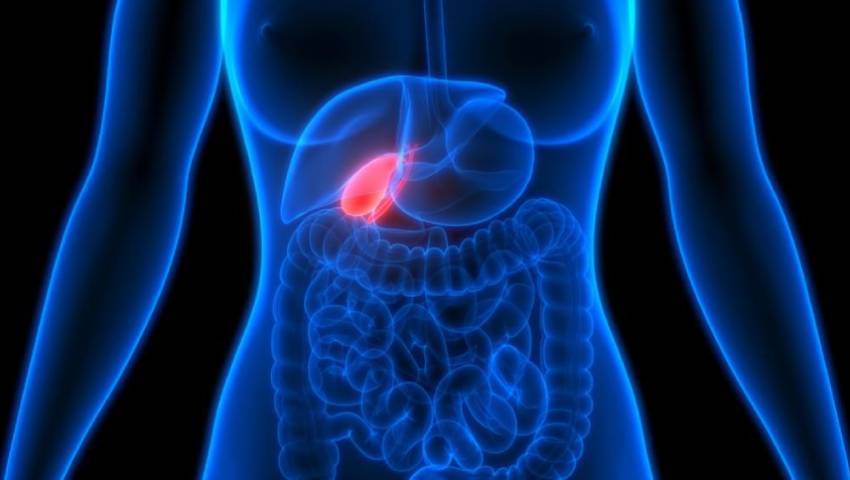
- 11/10/2022
- Dr. Samrat Jankar
- 0 Comments
- Gallbladder Stone Surgery
Life after Gallbladder Removal
The gallbladder is a pear-shaped organ that is about 4 inches in length. It’s instantly beneath your liver in the leading right corner of your abdomen. You can persist without the gallbladder because it is not a vital organ. It does, yet, have a purpose: by concentrating, storing, and removing bile produced by your liver, it assists in the digestion of fatty foods.
You may be examining forward to gallbladder removal and relief from your agony if you’re suffering from the discomfort and other symptoms that a malfunctioning gallbladder may bring.
If you are facing issues after gallbladder removal avoids forgetting them. You can visit physicians having expertise in this field. You can visit one of the most renowned Laparoscopic and bariatric surgeon in Pune– Dr. Samrat Jankar
Gallbladder surgery side effects:
- Difficulty in digesting food
- wound infection
- Pain that gets worse
- Blood Clot
- Bile duct injury or bile leakage
- Bulging of organ or tissue (hernia)
- Diarrhea and fever
- Damage to the bowel and blood vessel
- Heart problem
- PCS (Post Cholecystectomy Syndrome)
- Bloating and loose stools
- cramps and excessive gas may occur
Can I live normally without a gallbladder?
Lifestyle Changes after Gallbladder Removal:
The following lifestyle changes may help in living a healthy life after the gallbladder removal:
- Avoid eating fried, fatty, and greasy foods
- Quit alcohol
- Avoid or limit the intake of caffeine
- Exercise daily
- Eat a small amount of meals
- Keep a low-fat diet
Tips to avoid discomfort after gallbladder removal:
- Give your stomach some downtime after surgery- Following a light, smoothly digestible diet gives your abdomen time to rest after surgery. Stick with meals such as clear broth or gelatin initially, and then add soft solids slowly. Contrary to the regular whole grains and natural veggies suggested for beneficial eating, white rice, refined white bread, and cooked rather than raw foods are more easily processed and a better option for a few days after your surgery.
- Eat smaller meals- Eat smaller meals more frequently. Large meals cause your digestive procedure to work harder and raise your risk of generating gas and other symptoms connected to gallbladder removal.
- Choose healthy over high-fat foods- We all require fat in our diets, but the type and quantity you reach for creating a difference, and a high-fat meal can cause abdominal bloating and cramping after gallbladder removal.
Fats to avoid include:
- French fries or potato chips, and other fried snacks
- Fatties such as bologna and sausage
- Complete fat cheeses, ice cream, and milk
- Pizza
- butter
- Cream soups & sauces
- Coconut & palm oil
Recovery After Gallbladder Surgery:
Unless there are no difficulties after the gallbladder removal, the recovery should bear smoothly.
Almost always, Dr. Samrat Jankar prefers the laparoscopic technique for gallbladder removal since it is a small invasive process. After the surgery, the physician will keep you in the clinic for three to five days if undergo open surgery.
When compared to open surgery, laparoscopic surgery offers a lower chance of difficulties during and after the process, as well as a quicker recovery period.
Here are some tips you should save in mind-
- Try not to physically strain yourself for at least 2 weeks.
- You should learn how to clean the wounds
- Swallow only a liquid or light diet for the first few days.
- Drink fluids throughout the day.
- Limit highly salty, sweet, spicy, or fatty foods for a couple of weeks.
- Improve your fiber intake for useful digestion but limit the consumption of nuts, seeds, whole grains, cauliflower, cabbage, etc.
When to see a doctor after surgery?
- pain that doesn’t get better with time, new abdominal discomfort, or pain that gets more destructive
- severe nausea or vomiting
- yellowing of your skin
- whites of your eyes
- no bowel activity or passing of gas for more than three days after surgery
- diarrhea that persists for three or more days following surgery
Keep in mind that the cholecystectomy’s digestive side effects should reduce after one to four weeks of surgery. If your signs persist longer than 30 days, you should visit a doctor.
Make an appointment with our experienced gastroenterologist and gastrointestinal surgeon Dr. Samrat Jankar today to know more about what to expect during cholecystectomy and after gallbladder removal surgery.
